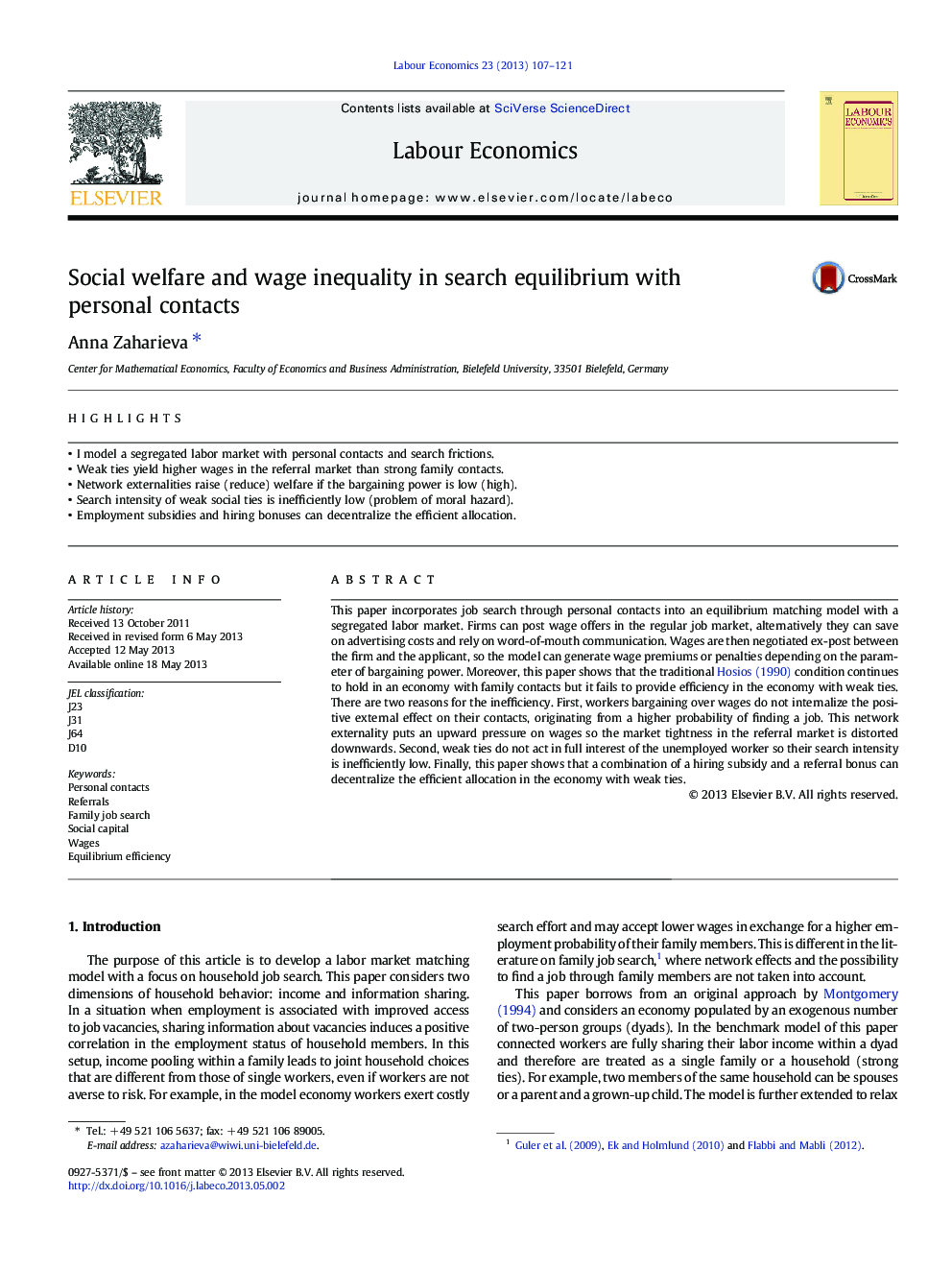| کد مقاله | کد نشریه | سال انتشار | مقاله انگلیسی | نسخه تمام متن |
|---|---|---|---|---|
| 972395 | 1479714 | 2013 | 15 صفحه PDF | دانلود رایگان |

• I model a segregated labor market with personal contacts and search frictions.
• Weak ties yield higher wages in the referral market than strong family contacts.
• Network externalities raise (reduce) welfare if the bargaining power is low (high).
• Search intensity of weak social ties is inefficiently low (problem of moral hazard).
• Employment subsidies and hiring bonuses can decentralize the efficient allocation.
This paper incorporates job search through personal contacts into an equilibrium matching model with a segregated labor market. Firms can post wage offers in the regular job market, alternatively they can save on advertising costs and rely on word-of-mouth communication. Wages are then negotiated ex-post between the firm and the applicant, so the model can generate wage premiums or penalties depending on the parameter of bargaining power. Moreover, this paper shows that the traditional Hosios (1990) condition continues to hold in an economy with family contacts but it fails to provide efficiency in the economy with weak ties. There are two reasons for the inefficiency. First, workers bargaining over wages do not internalize the positive external effect on their contacts, originating from a higher probability of finding a job. This network externality puts an upward pressure on wages so the market tightness in the referral market is distorted downwards. Second, weak ties do not act in full interest of the unemployed worker so their search intensity is inefficiently low. Finally, this paper shows that a combination of a hiring subsidy and a referral bonus can decentralize the efficient allocation in the economy with weak ties.
Journal: Labour Economics - Volume 23, August 2013, Pages 107–121